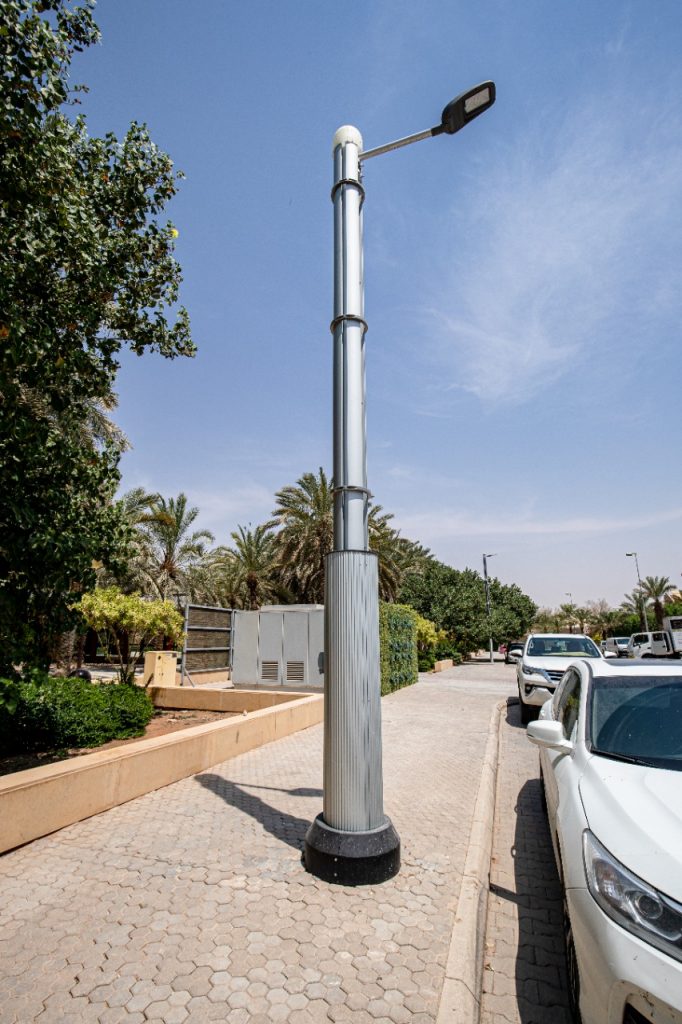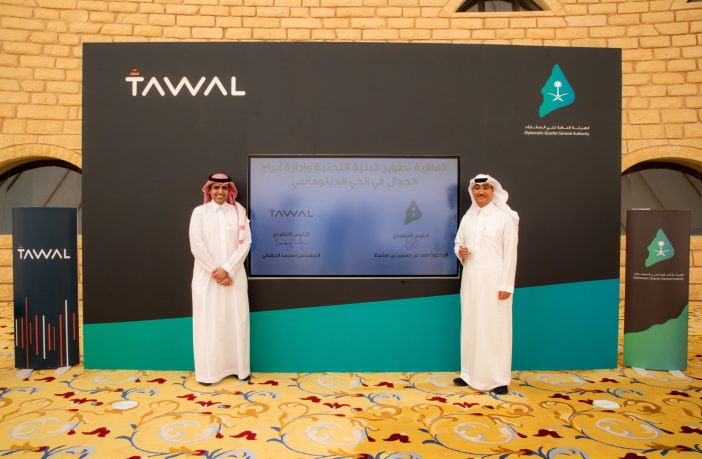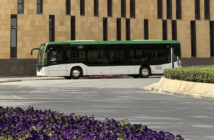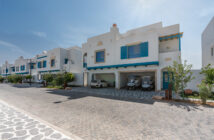BY MARIA COMETTI
The Diplomatic Quarter is fast becoming a smart city; a model district utilizing the latest technologies to enhance the well-being of the community and to conserve the environment.
We have all heard of smart cities, but what really is a smart city and how does it help create a more sustainable environment? A smart city is an urban area that uses electronic Internet of Things (IoT) sensors to collect data. The data is then used to improve operations across the city and increase the connectedness of the community. All the elements of the city, from air quality monitoring to waste collection, are made easier or more efficient through a network connection. Smart cities meet our current needs without negatively impacting future generations.
The numerous benefits of becoming a smart city have been seen in some of the world’s most populous cities. The city of Moscow implemented an urban and metro smart surveillance system following the 2011 bombings, and was able to solve 1,200 criminal cases in one year. In the city of Pune, India, the Energy and Research Institute retrofitted 500 light poles with efficient ones and greatly reduced energy consumption to 30%, and 27 tons of Co2.
In Saudi Arabia, Riyadh’s Diplomatic Quarter (DQ) is fast becoming a smart city and a model district. A major step towards enabling the DQ’s smart city transition took place on July 7, 2020, when the Diplomatic Quarter General Authority partnered with TAWAL, the leading integrated ICT infrastructure service provider in the Kingdom, for the development of the area’s telecommunication infrastructure.
TAWAL will be managing the DQ’s telecommunication tower services and working on securing wide mobile network coverage according to the highest global standards. The new telecom towers will be environment-friendly and strategically-located as to preserve the splendor and beauty of the DQ’s landscape. This plan is unique in that TAWAL will be managing the grid in accordance with all the Kingdom’s telecommunication providers thus resulting in a strong centralized network with 5G coverage.
As the ICT infrastructure continues to develop, the DQGA is taking tech-driven steps to improve DQ inhabitants’ quality of life, reduce the area’s environmental impact, and provide valuable data to businesses and investors.
Becoming a smart city also means becoming a safe city. Safety doesn’t only mean low crime; it extends to ensuring that the streets are safe for everyone for both pedestrians and cars. Developing technologies provide an even greater opportunity to ensure the safety and security of the DQ, its residents and its visitors.
The implementation of real time traffic monitoring through sensors placed at the north and south gates provides valuable data that can be utilized to improve traffic congestion, reduce pollution, and aid in planning activities. The data is displayed on a visualization platform created by Sadeem, one of the Saudi companies emerging from King Abdullah University of Science and Technology.
The DQ’s Smart Parking Service provides a solution to reduce congestion and wrong parking within the streets of the neighborhood. Currently, there are approximately 3,540 above and underground parking spaces after the project’s first phase was finished. The next stage of implementation will create more than 5,000 parking spaces. After visitors park their cars, they can use the DQ’s free shuttle service to move around the place.

The ambiguous rules about who can enter the DQ premises have long been a source of frustration for guests. This will soon be resolved by a Centralized QR Code system that will be implemented to facilitate quick and secure access to the DQ. Biometric technology solutions that enable efficient control access will indicate who is going in and out of the area. When Jawazat, the General Directorate of Passports for Saudi Arabia, expanded its use of biometrics to facilitate traveler processing, entry was expedited to a maximum of 5 minutes in the queue.
Have you ever had a tour by a robot? As artificial intelligence, augmented reality, and virtual reality experiences are implemented in the DQ, robot tours may be just around the corner. More beneficial for residents and frequent visitors however, will be an interactive application that will simplify and enrich the community’s life and communication with the DQGA. Through the application, residents will be able to report issues, conduct services, and receive updates from the DQGA about news and events happening in the DQ.

Visitors of the DQ Parks and Gardens may have already noticed some of the other ways in which the DQ is transitioning into a smart city. Beta testing of several new technologies is underway. Smart Pole lighting brightens selected parks, streets, and sidewalks. The lights are operated via a remote control system and utilize solar energy. Smart benches have been installed to provide public WiFi, mobile charging, and provision of music through solar charging. Soon, Smart Gardens that marries nature and technology will provide water leakage protection and smart irrigation. Also In the future, park visitors will be entertained by fountain and light shows.
Real time sensors that monitor the environmental indices: PM10, PM2.5, CO2, NO2, and O3 are already providing decision makers with useful air quality data. Implementation of a more efficient waste collection system is also undergoing testing, which will involve remote monitoring of waste bins.

The Smart Masjid is yet another example of using the technology that we have come to rely on to create a more sustainable environment. The Smart Masjid combines technologies to provide a level of comfort for the worshiper. It controls the temperature, lighting, and security according to different prayer times and seasons, thus limiting waste of energy and water resources. The control of services is done over the internet via a digital cloud incorporated with the masjid systems.
As the DQ transitions into a Smart City, the benefits will continually be realized by the community and stakeholders. More efficient utilities, improved transportation, reduced pollution, enhanced connectivity and improved quality of life are only some of the advantages to be expected.




